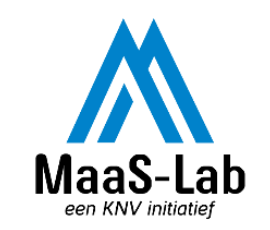The way people move was on the eve of a radical transformation. The corona crisis has left all mobility services that are being developed within the framework of MaaS (Mobility as a Service) with an additional issue. More social cohesion through the sharing economy and an increase in traveling together now pose a problem within the new 'one and a half meter economy'.
An article full of questions that may answer itself once we speak of it new normal'. We like to think in terms of solutions, especially when it comes to mobility. But ho do you deal with shared vehicles that are ready? Who was the previous driver and was the car sufficiently disinfected?
The discussion about consumer protection has taken on a new dimension. How do you protect consumers in a sharing economy where they can be exposed to the dangers of a virus infection?
sharing economy versus one and a half meters of economy
Municipalities and commercial providers are involved in various partial products that will jointly make MaaS, such as target group transport, facilities for public transport, taxi, car sharing, bicycle sharing concepts and P&R. Maintaining and monitoring the RIVM protocol will also play an extremely important role in all these modes of transport.
The traveler is central in the MaaS apps. Mobility as a Service (MaaS) stands for a mobility concept, in which the consumer uses different means of transport via one subscription. He or she no longer has to worry about the necessary reservations and payments. But he also does not want to worry about the preconditions and the RIVM protocol with which the services must comply. That is a matter for the providers, can you still assume?
disruptive parties
There are also disruptive parties that broaden and deepen their offer. Think of Flixbus or Uber, which is currently working on setting up alternatives to public transport, the classic car providers who are setting up new mobility services or adding new (partial) concepts to their offer. Everyone has to deal with the RIVM protocol, even after a vaccine is available. How will these parties ensure that the services offered meet all the requirements?
no response from national pilots
Under pressure from the corona crisis, we asked ourselves the question of the impact on the MaaS pilots that started on 1 April from a tender process. It is clear that these are not currently receiving the highest attention, but when inquired with those responsible, the answers were poor. Our question was forwarded to other colleagues within the Ministry of Infrastructure and Water Management until it ended up on a desk somewhere of someone who may now be working from home and who does not now see what is waiting in his incoming mail.




